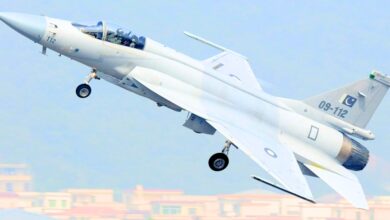
Pakistan encourages Chinese firms to invest in 13 key sectors: Pakistan has identified 13 priority sectors aimed at boosting export-oriented industries, urging top Chinese companies in these sectors to invest in the country.
During Prime Minister Shehbaz Sharif’s visit to China, a Joint Statement was issued, highlighting the mutual commitment to expanding exports to China and enhancing industrial cooperation under the China-Pakistan Economic Corridor (CPEC).
The Action Plan for Framework Agreement on Industrial Cooperation under CPEC was signed, underscoring the importance of industrial collaboration within the CPEC framework.
Both countries acknowledged the significance of CPEC as a flagship project of the Belt and Road Initiative, emphasizing its role in fostering economic development and cooperation between China and Pakistan.
During Prime Minister Shehbaz Sharif’s visit to China, Pakistan and China reaffirmed their commitment to enhancing cooperation across various sectors. They agreed to advance several key initiatives aimed at supporting high-quality Belt and Road cooperation.
The two sides highlighted the significance of projects under the China-Pakistan Economic Corridor (CPEC), such as the upgradation of ML-I and the realignment of the Karakoram Highway (Raikot-Thakot), which are crucial for Pakistan’s socio-economic development. Additionally, they emphasized the importance of upgrading the inspection infrastructure of the Khunjerab-Sost pass to ensure year-round functionality.
Recognizing Gwadar Port’s importance, both countries expressed satisfaction with the progress of the New Gwadar International Airport and emphasized the need to accelerate the development of auxiliary infrastructure for the port.
China reiterated its commitment to Pakistan’s industrialization and encouraged Chinese companies to invest in Pakistan’s Special Economic Zones (SEZs). Both sides also discussed cooperation in the mining industry, offshore oil and gas resources, and agriculture modernization.
Furthermore, they agreed to strengthen collaboration in digital information channels, energy cooperation, post-disaster reconstruction, and trade under the Phase II of the Pakistan-China Free Trade Agreement.
The joint statement also addressed cultural exchanges, space cooperation, climate change, defence and security cooperation, and counter-terrorism efforts. Both countries reaffirmed their support for peace and stability in South Asia and Afghanistan, as well as the resolution of conflicts such as the situation in Jammu and Kashmir and the Israel-Palestine conflict.
Overall, the visit resulted in the signing of 23 agreements and MOUs covering various areas of cooperation, demonstrating the deepening ties between Pakistan and China. Prime Minister Shehbaz Sharif expressed gratitude for China’s hospitality and invited Chinese leaders to visit Pakistan, further strengthening bilateral relations.






